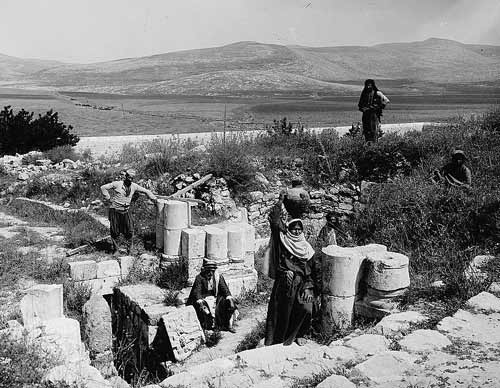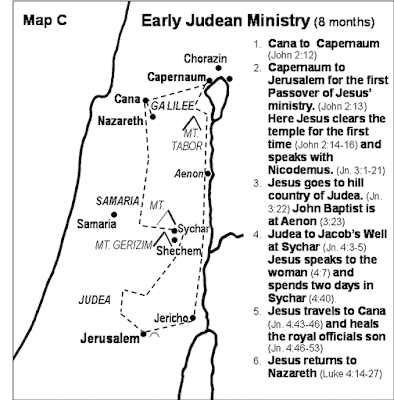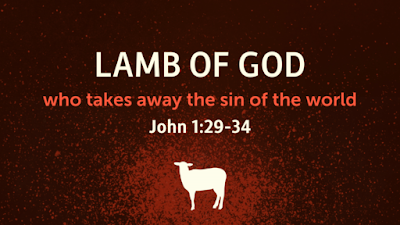Judea to Galilee, Section 26 Subdivison B

Section 26 JESUS SETS OUT FROM JUDEA FOR GALILEE Subdivision B AT JACOB'S WELL, AND AT SYCHAR JOHN 4: 5-42 Jesus is passing through Samaria--on his way from Judea where he was stirring up interest from the Pharisees, to Galilee. The name Sychar means drunken-town or lying-town. -VWS One commentary pointed out that his trip through Samaria was not a type of mission to the Samartians--it was functionally necessary in the sense that it was quicker. Jesus came first to the Jews. "Jacob's Well," Nablaus, c. 1900-1920 -- Library of Congress collection Jacob's well is currently in a contested area in the West Bank. Its is inside the grounds of a Greek-Orthodox monastery, Saint Photini. Fourfold Gospel: "It is one of the few Biblical sites about which there is no dispute, and probably the only place on earth where one can draw a circle of a few feet, and say confidently that the feet of Christ have stood within the c





















